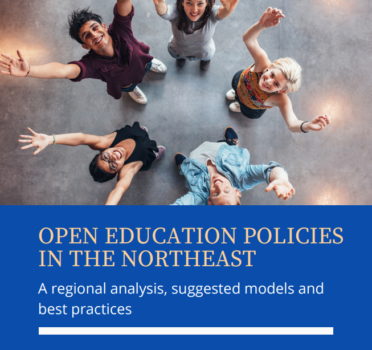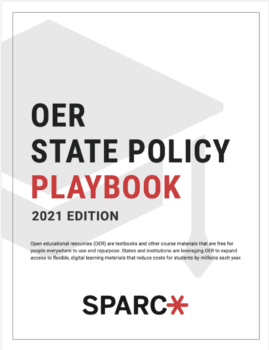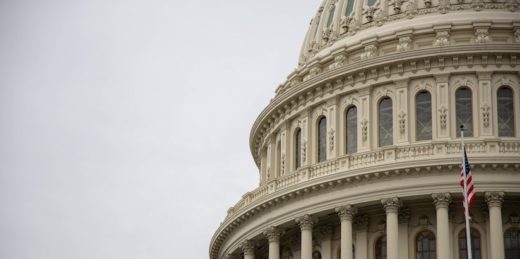Open Education in the Northeast States
Click on a state to learn more about its efforts towards supporting Open Education.
Connecticut
HB 7424 was enacted in 2019 establishing the Connecticut OER Coordinating Council under the Office of Higher Education. The council, chaired by Kevin Corcoran, Executive Director of Digital Learning for the Connecticut State Colleges and Universities System, convened for the first time in mid-September 2019 with an agenda to identify high-impact courses and facilitate a competitive grant program for higher education faculty in the state to develop, convert or adopt OER. The state has invested $75,000 for these grants. CT is a #GoOpen State.
Learn more
Maine
In 2011 the Maine Department of Education provided funding for Open Education Resource (OER) research through Title IID Enhancing Education Technology ARRA competitive grants. The grants supported the work of teacher research teams in the identification of high quality online educational resources that support and enhance classroom learning (mostly K-12). While Maine has not invested much in OER since 2011, the state’s grassroots efforts have been active and quickly expanding.
Massachusetts
In October 2019 the Massachusetts Board of Higher Education accepted Commissioner Carlos E. Santiago’s OER Working Group OER Report & Recommendations and endorsed implementation of its recommendations. The report highlights findings and recommendations to address both the barriers to increasing the use of and the opportunities to expand the use of OER at public institutions of higher education in Massachusetts, aligning with the Commissioner’s 2018 Equity Agenda, and supporting persistence and completion of underrepresented students. The report also called for the Department of Higher Education to designate a staff person to support the development of OER across the state and to coordinate the work of the statewide advisory council in developing plans to implement the Working Group recommendations. MA is a #GoOpen State. and the Mass System of Public Higher Education is a member of the OTN and DOERS3.
Learn more
New Hampshire
While New Hampshire has yet to pass any OER-related legislation, they are leading in many areas of the Open Ed community, particularly in Open Pedagogy with Robin DeRosa at Plymouth State University. The University System of New Hampshire’s (USNH) Open Education Initiative has been supporting forty-five faculty per year, for the last five years, as they integrate open resources and pedagogies into their courses to improve student engagement and make higher education more affordable. In the 2019-20 academic year student savings from the initiative should surpass a million dollars. The Community College System of New Hampshire (CCSNH) piloted an initiative in 2018 to support fifteen faculty members in converting their courses to OER. Due to the success of this pilot, the program will be expanded for 2019-20 and has the potential to save students upwards of $500,000. Together, USNH and CCSNH have formed the New Hampshire Open Education Public Consortium and joined a multi-state collaborative, “Driving OER Sustainability for Student Success,” (DOERS3) to partner with other state systems (such as Maryland and New York) to scale the benefits of OER from the institutional to the state-wide level.
Learn more
New Jersey
New Jersey enacted S 768, which requires institutions of higher education to develop an open textbook plan in consultation with faculty members at the institution. Each institution’s plan must be submitted to the Secretary of Higher Education with the intent to expand the use of open textbooks and commercial digital learning materials in order to achieve savings for students enrolled in the institution. The Virtual Academic Library Environment (VALE), a consortium of 50 New Jersey college and university libraries, LibraryLinkNJ (LLNJ), and the New Jersey State Library, hosts a statewide repository and referatorium collection developed for New Jersey higher education institutions for its educators to find and access materials. New Jersey has many participating #GoOpen Districts.
Learn more
New York
New York has passed various textbook affordability legislation over the years, but most notably the Governor Cuomo has invested $8 million out of state’s budget for the last three years to provide open educational resources, including electronic-books, to students at SUNY and CUNY. Under the state’s direction, SUNY and CUNY use this funding to target high-enrollment courses, including general education, to maximize student savings. New York has many participating #GoOpen Districts, and leaders from SUNY and CUNY co-launched the collaborative Driving OER Sustainability for Student Success (DOERS3).
Learn more
Rhode Island
Governor Raimondo’s statewide Open Textbook Initiative challenged the state’s higher education institutions to reduce college costs by saving students $5 million over five years using openly licensed textbooks. Over the course of three years in operation, the initiative has saved Rhode Island students $3.2 million. The initiative is led by a Steering Committee made up of representatives from eleven public and independent institutions aiming to make Rhode Island an Open Textbook state. To support the effort, funding for micro-grants is available to public institutions through the Rhode Island Office of the Postsecondary Commissioner and the Office of Innovation. Realizing that learning and savings go hand-in-hand, the Steering Committee is working hard to identify the ways in which to measure Open Pedagogy efforts across the state. RI is a #GoOpen State.
Learn more
Vermont
While no legislation has yet been presented in the state, in 2016, Vermont’s Agency of Education contracted OER Commons, an OER repository, to help the state’s education community collect, disseminate and catalog OER. #VTOpen resources support PreK-12 curriculum and so far, 160 Vermont educators have contributed materials to the Hub. VT is a #GoOpen State.
Learn more




